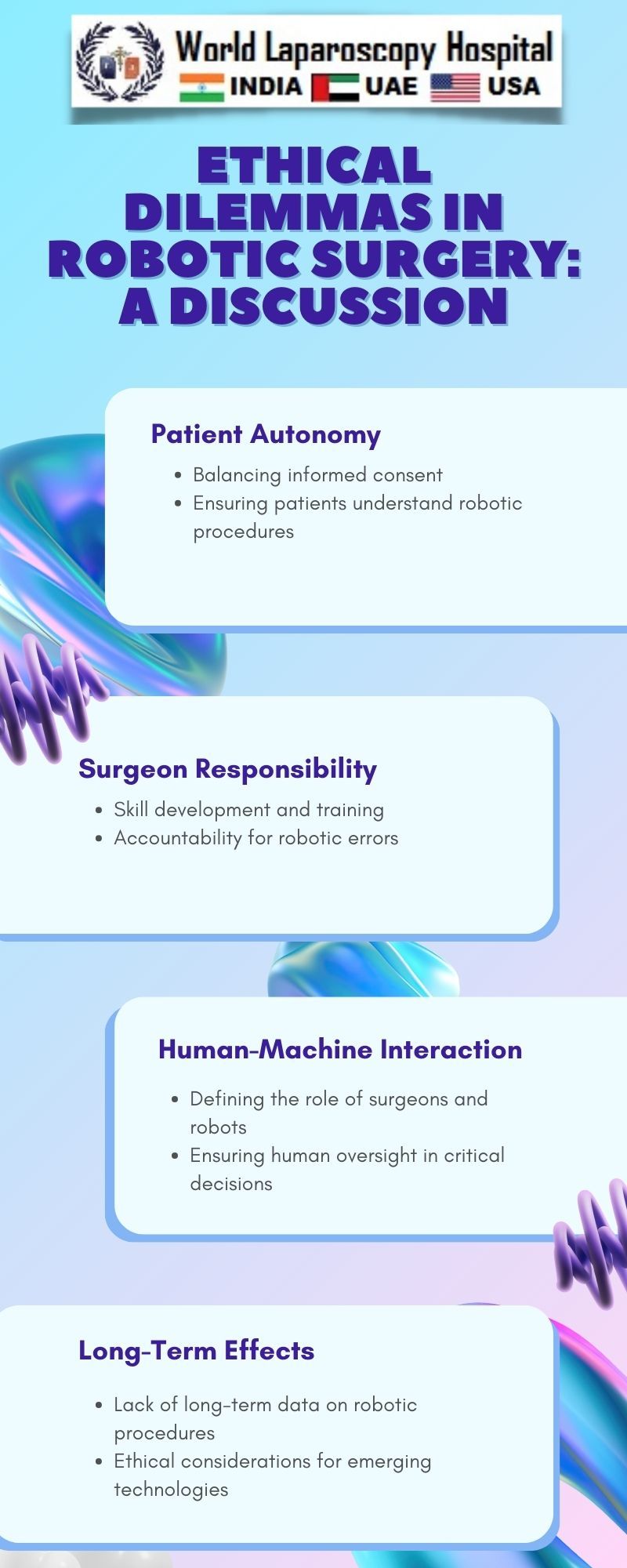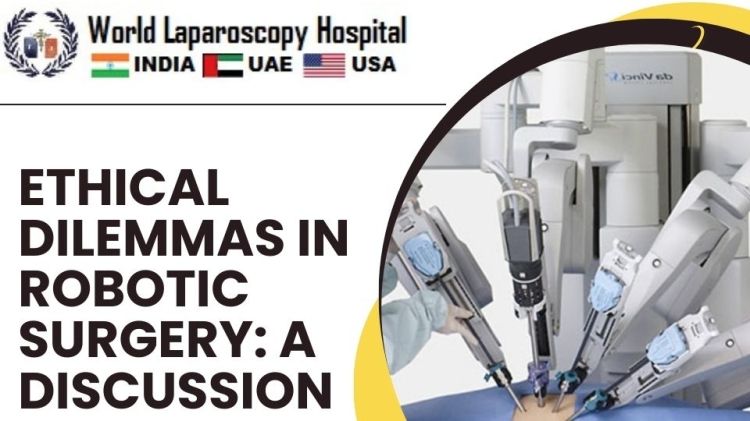Ethical Dilemmas in Robotic Surgery: A Discussion
Introduction:
In recent years, the field of medicine has witnessed a paradigm shift with the integration of robotic technology into surgical procedures. While robotic surgery offers enhanced precision and improved outcomes, it also presents a myriad of ethical dilemmas that require careful consideration. This article delves into the ethical challenges surrounding robotic surgery, exploring issues related to patient safety, job displacement, and the need for robust regulatory frameworks.

Robotic surgery's unparalleled precision is often celebrated as a breakthrough in medical technology. However, this precision comes with a potential downside – the erosion of the human touch in healthcare. Surgeons operating through robotic consoles may experience a disconnect with patients, raising questions about the emotional and empathetic aspects of medical care. Striking a balance between technological advancement and preserving the human connection is an ongoing ethical challenge.
Patient Safety Concerns:While robots can provide precision, their reliability and safety in complex surgical scenarios remain a concern. Technical malfunctions, software errors, or unforeseen complications could jeopardize patient safety. Ensuring the technology undergoes rigorous testing and continuous improvement is imperative. Ethical considerations extend to the disclosure of risks to patients, emphasizing transparency about the limitations and potential hazards of robotic surgery.
Job Displacement in Healthcare:The integration of robots into surgery raises concerns about the displacement of human jobs. As robotic systems become more sophisticated, there is a potential shift in roles, with traditional surgical teams facing the risk of redundancy. The ethical implications extend beyond the operating room to the broader healthcare workforce. Addressing these concerns requires a proactive approach, including retraining programs and ethical guidelines for the responsible implementation of robotic technology.
Informed Consent in the Robotic Era:Informed consent is a cornerstone of medical ethics, ensuring that patients are fully aware of the risks and benefits of a medical procedure. However, the complexity of robotic surgery introduces challenges in effectively communicating these aspects to patients. Surgeons must ethically navigate the informed consent process, explaining the unique aspects of robotic procedures, potential complications, and the surgeon's role in overseeing the robotic system.
Regulatory Frameworks and Standardization:The rapid evolution of robotic surgery necessitates a robust regulatory framework to ensure ethical practice and patient safety. Standardization of training programs, certification processes, and guidelines for ethical conduct are crucial. The lack of uniform standards across institutions and countries poses ethical challenges, emphasizing the need for a global consensus to guide the responsible development and deployment of robotic surgical systems.
Access to Robotic Surgery: A Socioeconomic Divide:The cost of implementing robotic surgery systems can be substantial, raising concerns about accessibility and creating a socioeconomic divide in healthcare. Ethical considerations include addressing disparities in access to advanced medical technologies, ensuring that benefits reach diverse populations. Initiatives to make robotic surgery more affordable and accessible are crucial to mitigate ethical concerns related to healthcare equity.
Autonomy and the Role of the Surgeon:Robotic surgery introduces a shift in the surgeon's role, from hands-on procedures to operating through a console. This transition prompts ethical considerations regarding the autonomy of the surgeon and their responsibility in overseeing robotic systems. Striking the right balance between technology-assisted procedures and maintaining the surgeon's expertise is essential for ethical practice in robotic surgery.
Conclusion:
The integration of robotic technology into surgery has undoubtedly revolutionized the field, offering unprecedented precision and potential benefits for patient outcomes. However, this progress comes with a host of ethical dilemmas that demand careful consideration. Addressing issues related to patient safety, job displacement, informed consent, regulatory frameworks, accessibility, and the evolving role of surgeons requires a collaborative effort from healthcare professionals, policymakers, and ethicists. By fostering an ongoing dialogue, we can navigate the ethical landscape of robotic surgery, ensuring that innovation aligns with ethical principles and enhances the overall quality of healthcare delivery.
